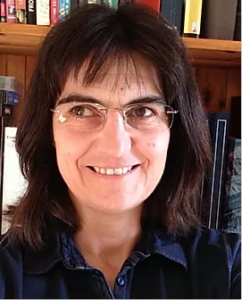 1. What is your role within the History department? I am a member of the History Department with no particular administrative or leadership role within the department; but I am currently the Head of School of History and Cultures. In this I represent SHaC, which comprises the History Department and the three other departments (CAHA, DASA and IIICH)
1. What is your role within the History department? I am a member of the History Department with no particular administrative or leadership role within the department; but I am currently the Head of School of History and Cultures. In this I represent SHaC, which comprises the History Department and the three other departments (CAHA, DASA and IIICH)
2. What are your research interests? My main research interest is currently around the social consequences of armed conflict with a particular emphasis on gender-based violence, children born of war and the peacekeeping economies.
3. Where did you study (UG, PGT, PGR etc.)? I read mathematics, philosophy, history and education at the University of Düsseldorf (UG) before completing an M.Phil in International relations and a PhD in Modern History at the University of Cambridge.
4. Did you always know you wanted to go to university or in to academia? I initially trained to be a teacher, but then did a PhD and ended in academia – so no, I did not plan on an academic career. I am not even sure I had a clear sense of academia as a career choice when I started uni.
5. How long did it take and how did you manage to fund and complete your PhD? I completed my PhD in two years, partly because of funding pressures. When I started my PhD, Cambridge was blacklisted by the AHRB, the funder of humanities PhDs at the time. This meant that I had to obtain patchwork funding to cover different aspects of my work at different times, tapping into funding from the German Academic Exchange Service (DAAD), the Konrad Adenauer Foundation, and the Mercedes Benz Foundation.
6. What was your PhD on? My Phd dealt with Anglo-German relations in the late 1950s and early 1960s, in particular before the background of developing European integration efforts and the Berlin Crisis.
7. What are you working on at the moment? I have just completed a book on children born of war in the 20th century. It covers five extensive case studies of children fathered by foreign soldiers and born to local mothers in WWII, the Vietnam War, the wars in former Yugoslavia, civil wars and genocides in sub-Saharan Africa and in peacekeeping operations. Arising out of this, I am currently engaged in some interdisciplinary work with scholars of global public health to study the experiences of peacekeeper-fathered children globally, with case studies in Haiti and the DRC.
8. What made you want to become a lecturer/academic? I entered academia from a teaching background. I enjoyed and still enjoy teaching, and academia presented me with an opportunity to combine my passion for research and teaching.
9. Name three books/films/podcasts you recommend to read/watch/listen to during lockdown.
- Priyamvada Gopal: Insurgent Empire: Anticolonial Resistance and British Dissent
- David Reynolds: In Command of History: Churchill Fighting and Writing the Second World War
- Eunice Apio: Zura Maids
10. What is the most historically inaccurate film or scene you have watched or read? Where do I start?? I guess when a trailer starts with a subtitle: the truth behind the myth, I get nervous – and that applies to rather too many films …
11. Are you staying physically active during lockdown? If so, how, and do you suggest anything? Sadly only through long walks, but recently I have strengthened my neck by forcing myself to nod in rhythm when seeing Antonia bounce on her exercise ball during meetings. Does that count?
12. Do you have any pets? If so, what? No
13. What is your favourite film or TV series? Silent Witness.
14. Do you have a favourite band/album/genre of music? If so, what? Given that we are in a Beethoven anniversary year, I’ll make this the recordings of all Beethoven symphonies by the Chamber Orchestra of Europe conducted by Nikolaus Harnoncourt.
15. Do you have any unusual links or claims to fame? Hhhmmm – I am afraid I am pretty ordinary.
16. What skill would you one day like to master? Reliably score 3 pointers in basketball.
17. What takes up too much of your time? The honest answer is probably: work.
18. What songs have you completely memorised? Simon and Garfunkel’s Greatest Hits.
19. What advice would you give to your younger self? Chill
20. Do you have any top tips for academic work/study for our students?Take work seriously – but not excessively so. The corollary: take regular breaks.
When I was a second year maths student, I encountered the only teacher ever, to respond in a meaningful way to the well-known limits to students’ attention spans. He divided every 50 minute lecture into two parts and enforced a five minute break in the middle. That time was spent with non-course activities. In semester one, he spent the break teaching us first aid; in semester two he taught us survival skills when encountering different kinds of bears in the wilderness. The result of this was that
- I have accumulated fair amount of pretty useless knowledge about bears that I am unlikely ever to put to the test.
- I am a mean first aider.
- I still remember more about linear optimisation than any other subject in maths, 30 years on.
DISCUSS!
